Nikolay Fetyukhin, MST digital agency: how to throw away all the excess and start growing
Let me introduce myself, my name is Maria Azizova, and I will keep you a blog of business stories of Russian web development from Simtech Development. Today I talk with Nikolay Fetyukhin, CEO of MST digital agency . The company, created by a 21-year-old young man in Ulyanovsk as a local advertising agency, is today a member of the Red Keds group of companies, works with leading international and Russian brands, furnishes the largest metropolitan agencies in tenders. In my opinion, the history of this agency is the best example of how a regional company can conquer the federal market. This is the experience of a global rethinking of business at an early stage of development.
It is useful to everyone who started a business and is faced with difficulties, who was touched by the crisis, who is afraid of tenders and does not dare to leave the region.

- Nikolai, how did MST digital agency start? How come you chose the direction of web development and the scope of digital?
- In 2004 I was 21 years old, I already got a good experience in marketing, headed the department of a large factory and believed that I know the advertising market in Ulyanovsk very well. It was decided to open an advertising agency. The competition did not bother me. But it turned out that the offline advertising market is already crowded and it is extremely difficult for newcomers to squeeze in there. But the online niche was empty, and we took it. In the very first year, we scored many projects for the development, support and promotion of websites, to which all our resources were devoted. So we became an online agency.
I divide the history of my company into two parts. The first 4 years were an example of how not to cost a business, and my first school of entrepreneurial experience. Then I made all conceivable and unimaginable mistakes.
- What were the mistakes?
First of all, as a business creator, I was sure that a manager should deal with absolutely everything and understand this perfectly. Maybe this is justified when the team consists of 5 people, but now I don’t think so.
Secondly, I gathered a company of friends. Clients were also friends. As a result, it was impossible to quarrel with those or with others, we had to make a compromise, which always ended in damage to the business.
Finally, as a marketer, I believed that if a client came to you, it means you are obliged to satisfy him by all means, to find a solution to the problem of his money. We grabbed for everything, we did not have financial planning, accounting for profitability, analysis of projects for profitability, a solid strategy.
As a result, we grew pyramidally, not qualitatively due to the development of the company as a business unit, but quantitatively. Word of mouth brought friends of our friends; for new projects, we invited more friends to work, the pace grew. I thought that my business was successful: more money passes through the company, more money goes through, more people work, everything is great! And what is the profit, I did not think. During this period, we opened an office in Moscow, which was also headed by a good friend of mine. Unreasonably increased marketing in the capital, not having there stable clients.
So we survived until 2008 and immediately felt the beginning of the crisis. What did we get? Huge debts due to the fact that the pool of customers sank. The client friends were the first to say: “Sorry, we can’t pay more or we will pay three times less.” Immediately grew debitorka. At the same time, I believed that my employees are the main asset that needs to be preserved. In the absence of external projects, I began to initiate internal ones in order to load them with work. However, the idea of experiencing a crisis together broke about reality in a few months. We raised a huge salary debt; friends quickly turned into employees who did not want to put up with the fact that they did not receive their money on time. Gone half the team. I closed the Moscow office. They left the big office in Ulyanovsk.
- But apparently, this is not the end of the story?
- This is the beginning of the second part of MST life. The crisis, like a good doctor, cured me first of all. It hurts, but is effective. The rethinking of business approaches has come.
After our team halved, we, oddly enough, began to work in profit. What was done?
I personally took up sales and tried to promote more value-added services.
We began to analyze the financial component. Now we have a clear financial accounting, there is a forecast, an operating lever, a stabilization fund. I can see in real time how much money a particular service brings and distracts and where the marginal income is higher. I started doing cash flow. In a crisis, the most important indicator is the availability of money within the system, because it is possible to burn and shut down even with a positive profit on paper.
I refused all friendly projects and try to never deal with them again. He also began to evaluate projects on profitability and learned to say no to clients.
The team of the remaining 15 people was more enthusiastic and motivated. As a result, over the year, we were able to pay off all the debts and earn our own new office, in which we work now. Annual profit was greater than the previous 4 years combined.


- Nikolay, how many people work for you now, how do you select people?
- Now the MST team consists of 60 people in two offices: an account office of 3 employees in Moscow and production in Ulyanovsk. In my work with employees, I adhere to several principles:
1. We do not increase the staff (and there were already 70 and 80 employees), because we understood that the company’s handling was deteriorating. Our business relates more to advertising, and here it is better to work on the quality and efficiency of people, rather than their quantity.
2. Do not take on the work of friends and relatives. Only professionals who are able to close the task well on a particular site.
3. We evaluate the employee solely for professionalism. Previously, we were fond of staff recruitment on the basis of psychological methods: the compatibility of Vasya with Petya was determined by the psychologist, built the matrix, advised how to deal with this or that employee. Over time, I realized that people with any type of character would work together only under one condition - if they are professionals. Give them comfortable conditions, an understandable task and an interesting project, and they will come to an agreement with each other.
For this reason, I turned the work on the formation of corporate culture. Once we formulated 10 values, diligently cultivated them, conducted corporate events in accordance with them, for example, creative breakfasts. But the moment came when the leaders addressed me. They asked to remove all unnecessary and leave only one value. Now the MST philosophy: “We only do great projects.”
4. Do not recruit interns. And if they rarely appear, we do not give them combat missions, as before, and do not pay for the work until they reach at least average specialists. Three years ago, when I was working on the company's strategy, I divided employees into professionals, middle-level specialists and interns. I have them distributed in the proportion of 15/25/20. It was then that I realized that in order to develop the company, it was necessary to increase the number of the first, reduce the second and remove the third. Today the proportion is 40/20/0.
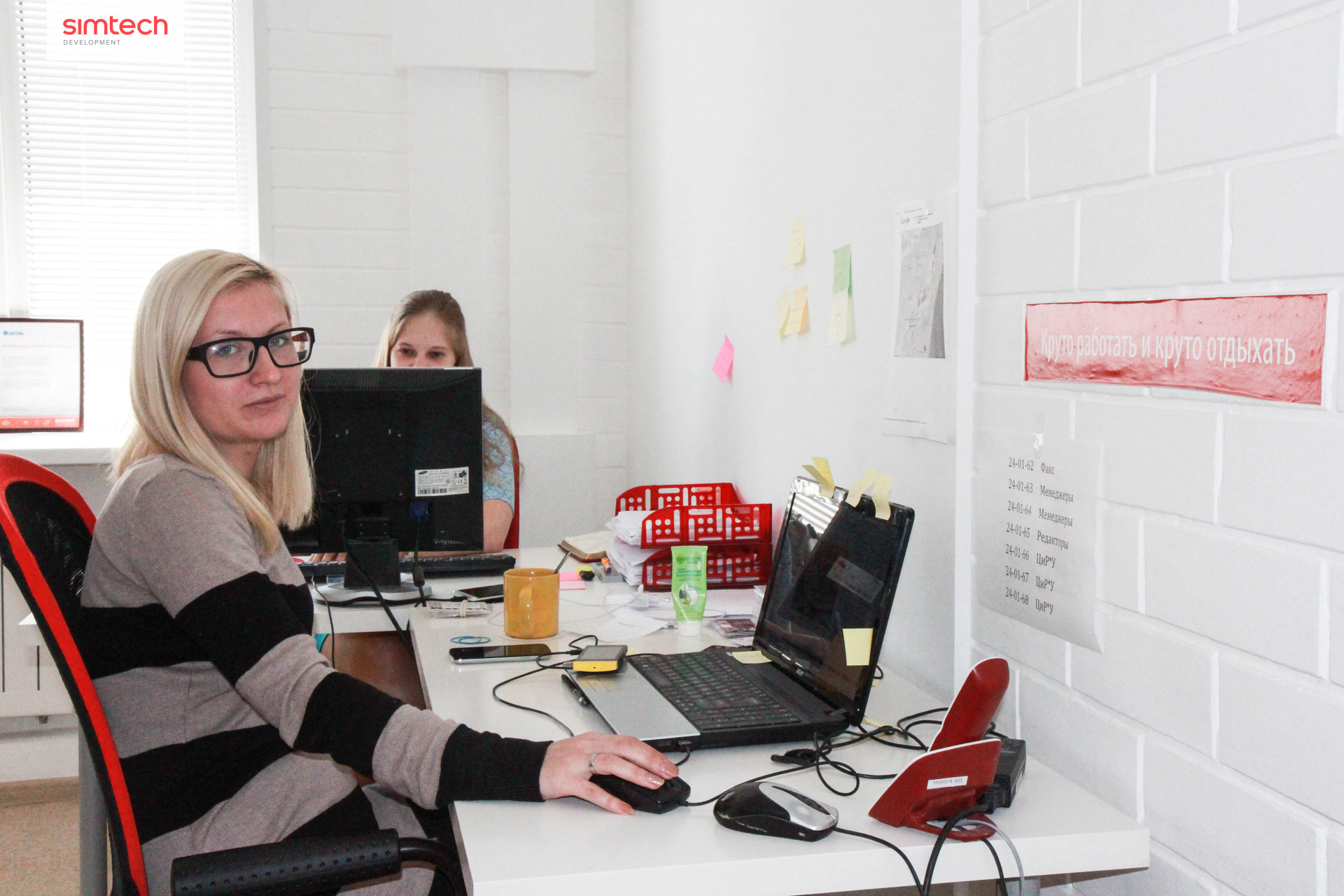
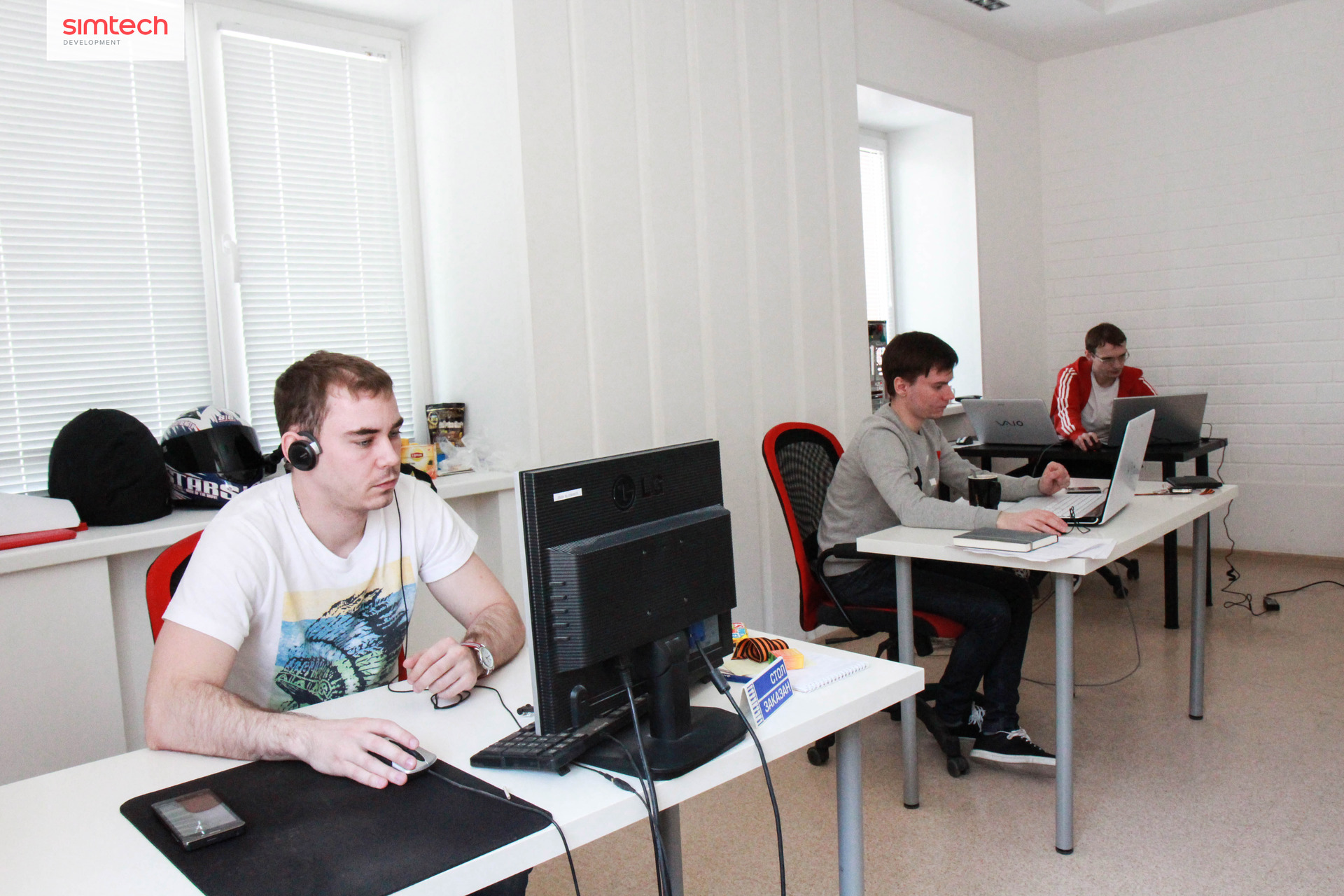
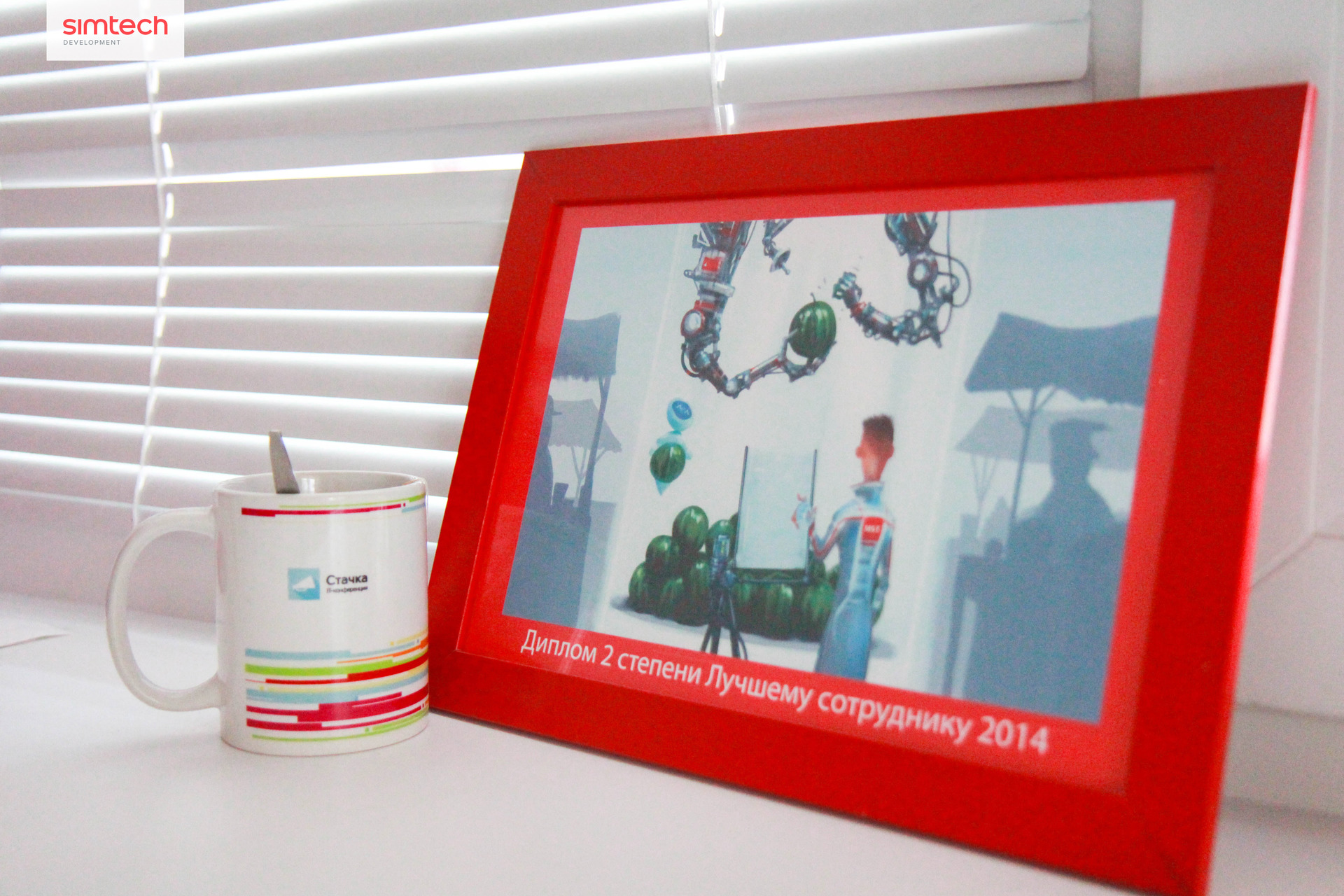
- What is the motivation system in the company?
- In the management of the company, I adhere to the structure of Adizes. Red squares - employees working on the product, green - on profit. Ideally, they should be equally. One of the tools to partially "repaint" production in green is to transfer their employees to piecework wages. When we introduced a new wage system, inefficient people left, and effective people started earning many times more.
For accounts, we also implemented this system with some changes. Everyone knows that for a regional company to find a manager in an account office in Moscow is a real problem. Because this person must be a Muscovite and have great experience. Such units, and they are expensive. It is much more profitable to take more account managers. At the same time, the constant travel of the CEO is exhausting and distracting. I thought about how to make them control themselves, and found a way out. Introduced bonuses for the general plan. Then the weak salespeople immediately dropped out, their colleagues asked them to leave. And the strong ones tighten the competences of the whole team, do not let them relax.
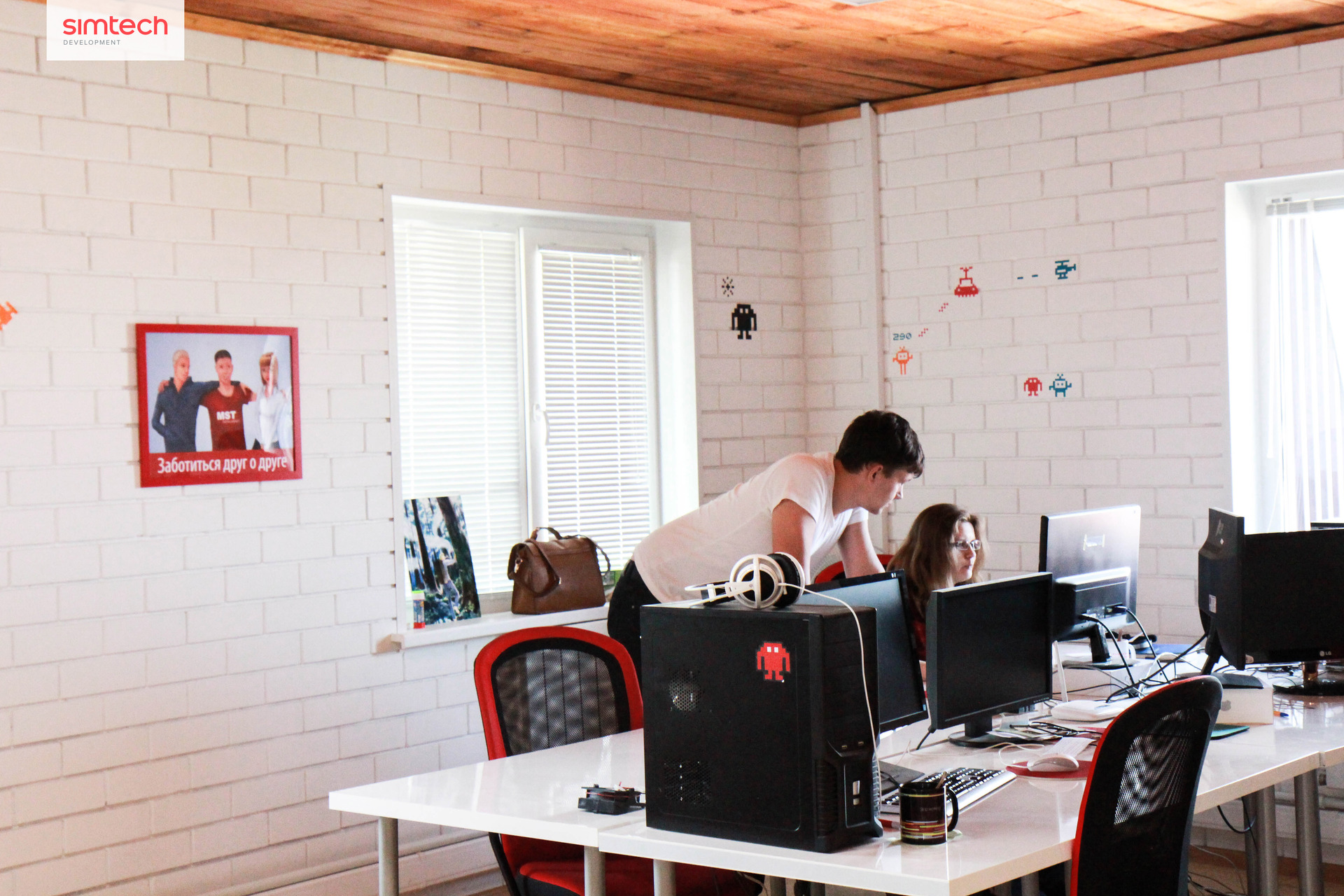
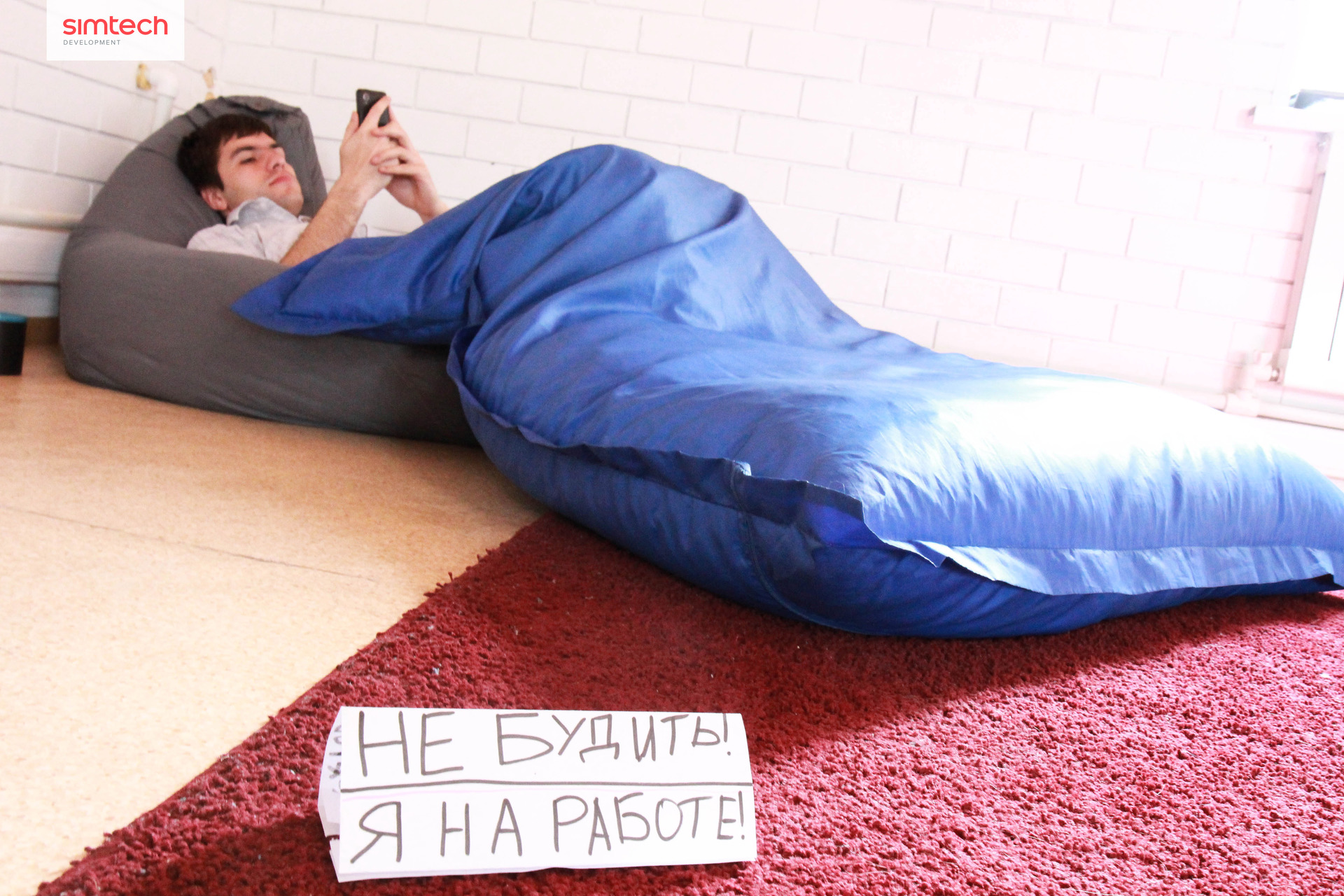

- What project can you name the most significant for the company?
- The first serious experience that has pumped the entire team - this was a project for the Rosneft company. We understood what it means to work with large brands: they are very demanding. First, in time. We received the task on Friday night and it had to be completed by Monday. Secondly, in quality. The task should be performed perfectly from the first time. At the same time, they also press for money, all the time dropping the price. Production began to work more efficiently, faster, better, the account service learned how to bargain, defend the price, respond quickly and give a correct assessment. And also we pumped in participation in tenders. Rosneft finds fault with every comma, because of which you can easily fly out of the competition.
- How, then, did you get such a serious project without experience?
- It is interesting that we participated in tenders for this company many times, starting from the crisis of 2009. At first it was a cold attempt: we tracked the tender, made an application, went to a meeting, prepared documentation, carried out a test task and lost. And so 5 times. At some point I wondered what we were doing wrong. And I realized that every time in something we are inferior to our rivals: in terms of application, design, documentation. Having decided that we must win at least one tender, we applied for the sixth one. He became ours. It was a small project for the selection of regional sites for the anniversary advertising campaign. We tried so hard that we did the research at the testing stage. Attracted strong analysts. Having a marketing background, I myself spent the night on the task. As a result, Rosneft also commissioned us to conduct this campaign. Its results exceeded their plans by 2 times. Thus began our friendship and long-term partnership.
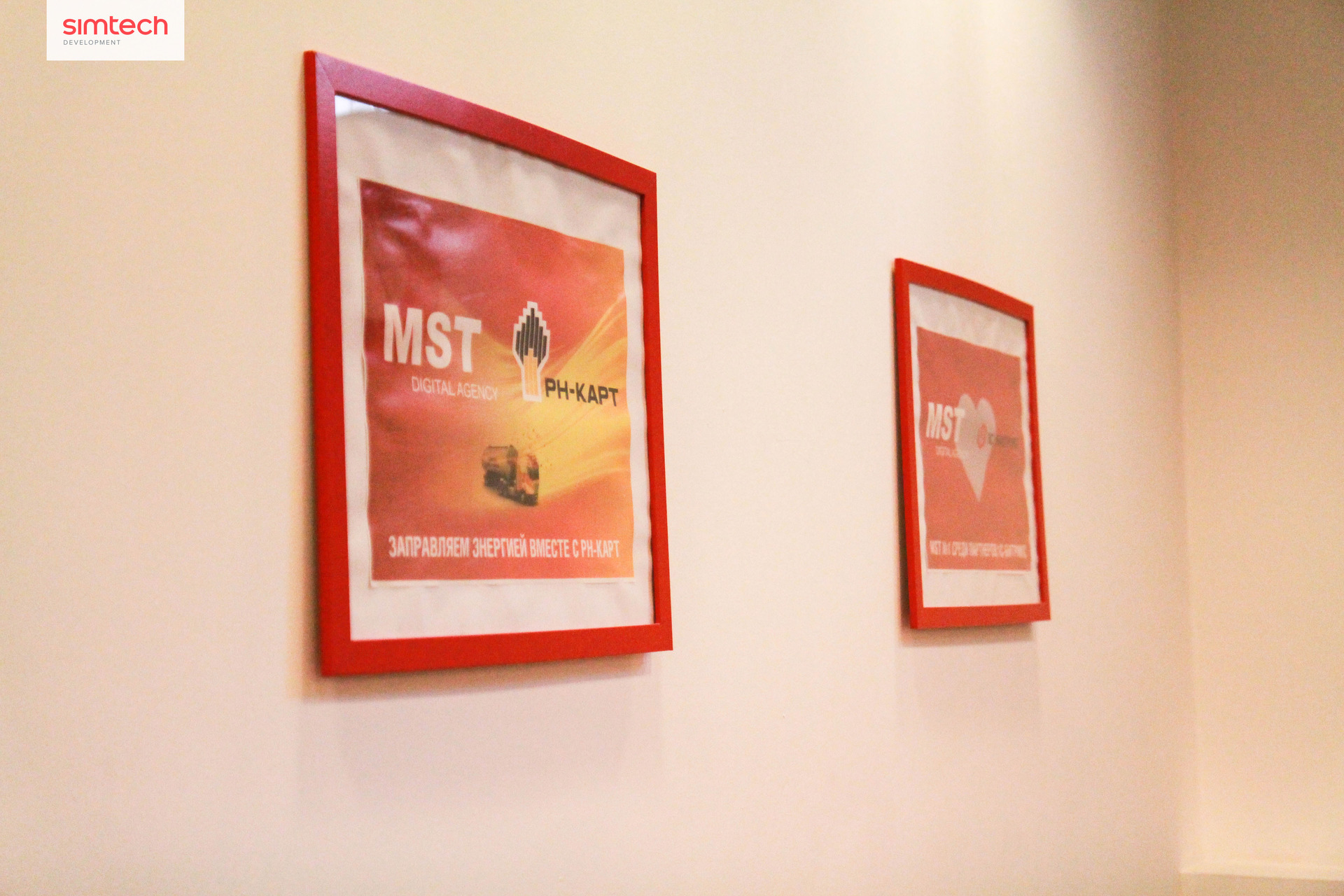
- Did Rosneft not be embarrassed by the fact that you were a regional agency?
- Then we positioned ourselves as a Moscow agency. We already had an office in Moscow. Today it does not bother anyone. On the contrary, production in Ulyanovsk inspires confidence and confidence in the quality of development at a competitive price (who does not know yet that Ulyanovsk is the Russian “silicone valley”, raise your hand? - from the author).
- What you need to have to win big tenders?
- The project is trusted to those who can best solve the problem or really want to solve it better than others. It must be remembered that on the reverse side of the tender there is not a company as a whole, but specific people - a brand manager or director of marketing. He needs to solve the business problem as efficiently as possible. If he copes with her, he is a hero with corresponding bonuses, bonuses and promotions. Therefore, the agency needs to pull this problem out of the client, digest it and find an excellent solution. If you do these three things qualitatively, then the contractor will see in you the one who is closest to solving his task.
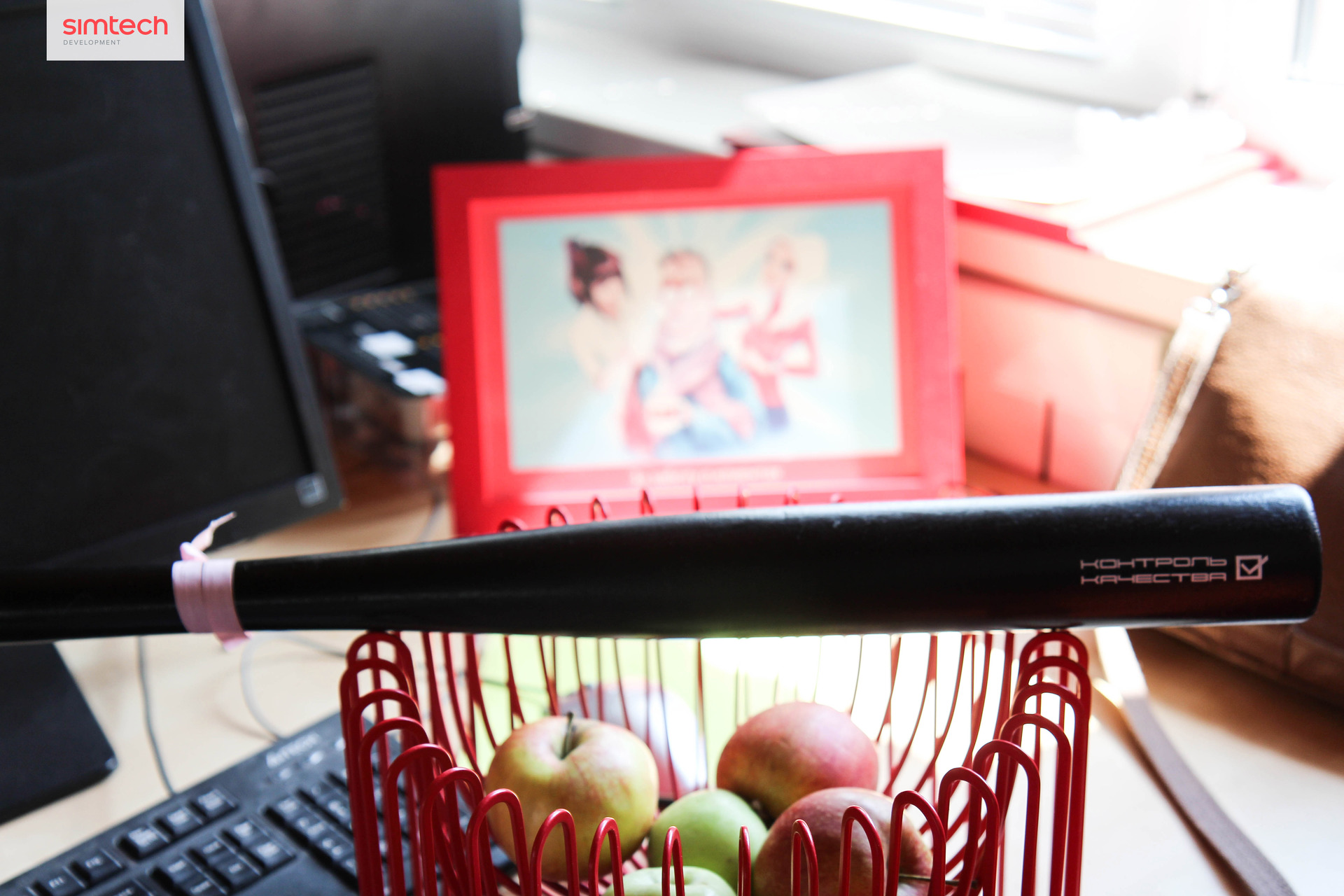
- Do you work under the scheme of outsourcing for other agencies?
- We had this experience, but we did not like it. I will explain why. I did not see long-term clients in those agencies. The choice of a partner is based on the principle of financial benefits for the project and the greatest savings on production services. No matter how well you work, if someone appears who offers less, they will leave you. There are much more retention points in work with clients. Important remain comfort in communication, work experience, the depth of immersion in its business objectives, customer service.
- The share of MST digital agency is owned by Red Keds. Tell us how the sale occurred and why. Is it worth selling a stake in your own agency?
- While Western monsters entered the Russian market, like Ogilvy & Mather and BBDO, and began buying up large local agencies, Red Keds had an idea to become the largest Russian corporation. They were going to unite the best digital brains and hands of Russia under their own brand and were looking at the market.
Initially, I responded to their proposal out of pure curiosity. I wanted to make an independent assessment of my company. But in the process of discussing conditions that lasted for 1.5 years, we became full partners. And this is the partnership that I am absolutely satisfied with today.
We have a non-standard scheme for entering a group of companies. When buying web studios, Red Keds used them as a production. They began to treat MST as an asset, from which it is possible to get additional profit. I was very pleased with the assessment. I realized that I had not plowed for 10 years, I created a company that is expensive, and my efforts were monetized.
- What did you get by joining the Red Keds group of companies?
- First, the source of new knowledge. We have been pulled up by the competence of the creative, we are training specialists in the courses of CERI, Red Keds specialists come to Ulyanovsk with lectures for our employees. Secondly, we received certain connections in the market and an additional stimulus for development. Thirdly, we have access to additional infrastructure projects like Cossa and Digital Silicone-Free.
Undoubtedly, Red Keds also has a certain profit from our partnership. They will tell about it better. I can say that in order to participate in several tenders they requested affiliation with us, because we have a good background working with banks and we are listed in the banking environment. And in the market for web development, the MST brand will be even more famous.
I believe that associations will prevail in the market. Look at AIC and QSOFT. Due to the different competencies and PR effect, today they are tearing up the market.
- How do you feel about ratings, and what does participation in them give?
- The topic of ratings is very interesting. I conducted a study and found out that ratings exist only in Russia, they are not found anywhere in the world. This is a feature of our digital market. The first rating of “Tagline” aroused great interest, it was noticed by market participants, even in the conditions of tenders a line appeared on participation in this rating. Everyone wanted to go there, someone was unhappy. Following the "Teglayn", began to appear like mushrooms, new contests, ratings, lists. As a result, there are now about 70 ratings on the market. Participation in them is beneficial, but it distracts a lot of the company's resources. Because each rating requires the submission of certain information: “Runet Rating” - as one of the confirmation options, providing documents for each project, “Tagline” is a bright site and industry recognition, which means that you need to speak at specialized conferences, Adindex requires customer contacts and etc.
I think this is an unhealthy situation and it should soon be resolved in some way. I think that the influence of ratings will decline in Russia. Perhaps there will be a merger of ratings.
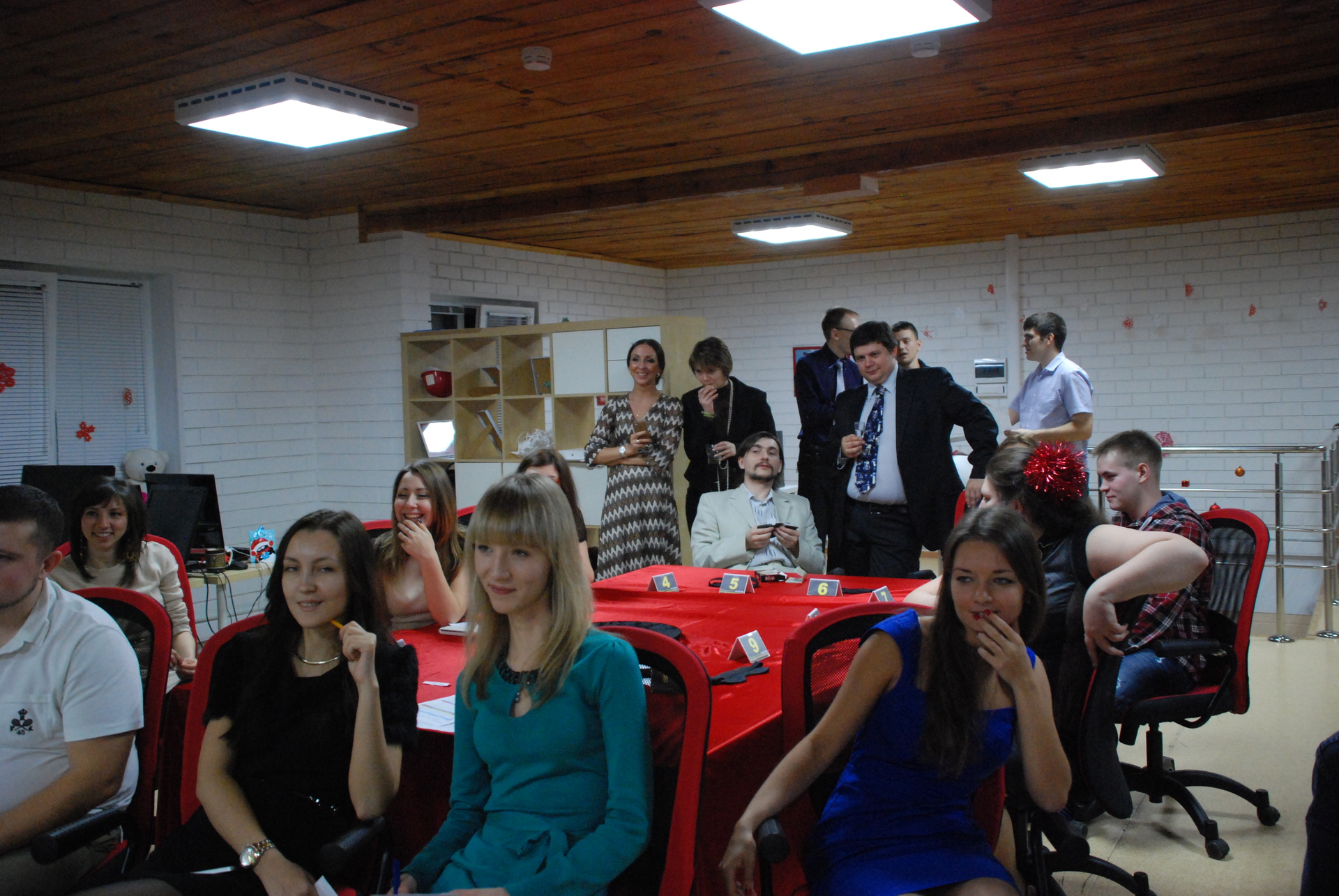
- What professional associations are you in? Do I need to join the young agency somewhere?
- We are now only in the Association of Interactive Agencies (AIA). We were in three associations, but we left there, because everywhere there is some chaos of control. Any such associations go through four stages: the first year they are actively developing, the second - they do nothing and use the groundwork of the first, in the third year - they only collect fees, and in the fourth - they think how to restart them. We leave the association as soon as the case rolls down only to the contributions :)
Join professional associations only if you can measure the benefits from them with money. And if the activity of members will be stimulated by the system itself. Such an ideal organization for me is SPECIA in St. Petersburg.
- And finally, do you feel the crisis?
- The crisis exists. I judge on several grounds. All companies, including MST, have accounts receivables growing, and it is harder to work with them. There are customers who have started serious problems with the business up to bankruptcy. We already have such cases. There are more freed specialists on the market. If earlier we received 1 resume per day, now they are pouring in 5 times each. And another 5 offers from various outsourcing studios who want to work with us.
As for our agency, we were preparing for a crisis already in 2013, then in 2014. And even a little disappointed that he came so late. We have a simple strategy: in a crisis, we are going to attack. We strengthen marketing activities through supplies. We have no reductions in appeals, and we are trying to better process the incoming stream. We are not going to cut anyone, and even open vacancies.
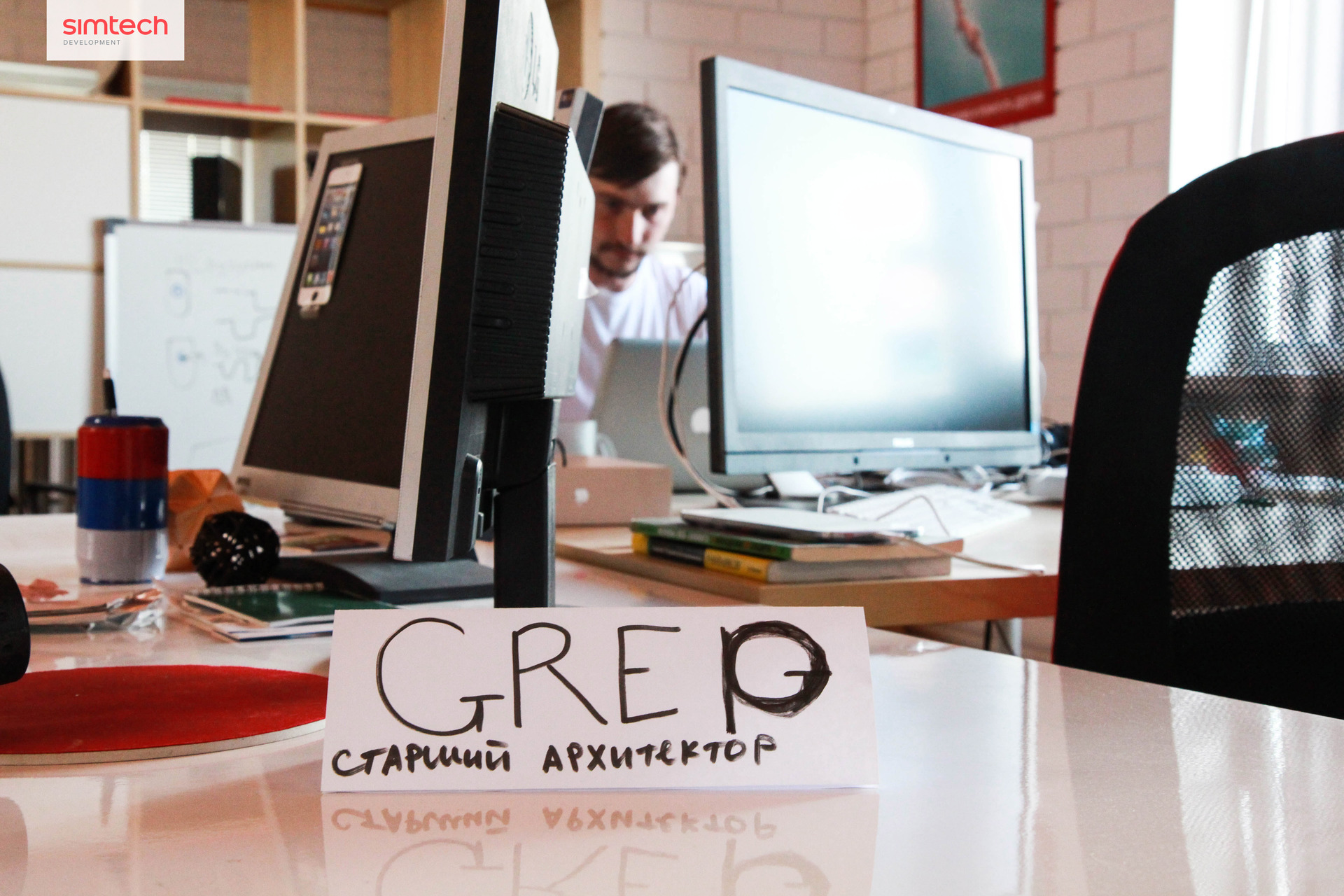
And there was an additional opportunity in the form of appeals from Western clients. When the devaluation of the ruble occurred, foreign companies immediately realized that something useful could be obtained from this. And in Russia, a strong IT-development. It is also profitable for us. If last year we wouldn’t work with a project worth $ 10,000 - 15,000, then this year, we’re already happy to undertake it because of the exchange difference.
I see no problems due to the crisis. In our business there are only traditional problems with personnel, which are always hard to teach, educate and retain.
What do you think about the business of web studios? Do you feel the new opportunities of the crisis? What are your ways to motivate staff? Do you participate in ratings? Tell your success story. I am pleased to hear your comments. And together with Nikolay Fetyukhin I will answer any questions.
 I am Maria Azizova, editor of the blog of business ideas Simtech Development
I am Maria Azizova, editor of the blog of business ideas Simtech Development
It is useful to everyone who started a business and is faced with difficulties, who was touched by the crisis, who is afraid of tenders and does not dare to leave the region.

Company Overview:
')
Positioning: full-service digital-agency
Brands: Panasonic, IKEA, Audi, M.Video, Raiffeisen, Rosneft, British Petroleum, Gazpromneft, Nomos-Bank / Discovery, Silver Rain, Life, BNP Paribas, Incanto, Valentin Yudashkin, Madrobots, Scarlet Sails, DMI / Dyatkovo, Moscow Industrial Bank
Offices: Moscow, Ulyanovsk
Staff: 60 employees
Ratings: 8th place (“Rating the Runet”), 11th place (Ruward), 14th place (“Tagline”)
Agency History: Why Friendship Does Not Work in Business
- Nikolai, how did MST digital agency start? How come you chose the direction of web development and the scope of digital?
- In 2004 I was 21 years old, I already got a good experience in marketing, headed the department of a large factory and believed that I know the advertising market in Ulyanovsk very well. It was decided to open an advertising agency. The competition did not bother me. But it turned out that the offline advertising market is already crowded and it is extremely difficult for newcomers to squeeze in there. But the online niche was empty, and we took it. In the very first year, we scored many projects for the development, support and promotion of websites, to which all our resources were devoted. So we became an online agency.
I divide the history of my company into two parts. The first 4 years were an example of how not to cost a business, and my first school of entrepreneurial experience. Then I made all conceivable and unimaginable mistakes.
- What were the mistakes?
First of all, as a business creator, I was sure that a manager should deal with absolutely everything and understand this perfectly. Maybe this is justified when the team consists of 5 people, but now I don’t think so.
Secondly, I gathered a company of friends. Clients were also friends. As a result, it was impossible to quarrel with those or with others, we had to make a compromise, which always ended in damage to the business.
Finally, as a marketer, I believed that if a client came to you, it means you are obliged to satisfy him by all means, to find a solution to the problem of his money. We grabbed for everything, we did not have financial planning, accounting for profitability, analysis of projects for profitability, a solid strategy.
As a result, we grew pyramidally, not qualitatively due to the development of the company as a business unit, but quantitatively. Word of mouth brought friends of our friends; for new projects, we invited more friends to work, the pace grew. I thought that my business was successful: more money passes through the company, more money goes through, more people work, everything is great! And what is the profit, I did not think. During this period, we opened an office in Moscow, which was also headed by a good friend of mine. Unreasonably increased marketing in the capital, not having there stable clients.
So we survived until 2008 and immediately felt the beginning of the crisis. What did we get? Huge debts due to the fact that the pool of customers sank. The client friends were the first to say: “Sorry, we can’t pay more or we will pay three times less.” Immediately grew debitorka. At the same time, I believed that my employees are the main asset that needs to be preserved. In the absence of external projects, I began to initiate internal ones in order to load them with work. However, the idea of experiencing a crisis together broke about reality in a few months. We raised a huge salary debt; friends quickly turned into employees who did not want to put up with the fact that they did not receive their money on time. Gone half the team. I closed the Moscow office. They left the big office in Ulyanovsk.
- But apparently, this is not the end of the story?
- This is the beginning of the second part of MST life. The crisis, like a good doctor, cured me first of all. It hurts, but is effective. The rethinking of business approaches has come.
After our team halved, we, oddly enough, began to work in profit. What was done?
I personally took up sales and tried to promote more value-added services.
We began to analyze the financial component. Now we have a clear financial accounting, there is a forecast, an operating lever, a stabilization fund. I can see in real time how much money a particular service brings and distracts and where the marginal income is higher. I started doing cash flow. In a crisis, the most important indicator is the availability of money within the system, because it is possible to burn and shut down even with a positive profit on paper.
I refused all friendly projects and try to never deal with them again. He also began to evaluate projects on profitability and learned to say no to clients.
The team of the remaining 15 people was more enthusiastic and motivated. As a result, over the year, we were able to pay off all the debts and earn our own new office, in which we work now. Annual profit was greater than the previous 4 years combined.


Managing people: professionals do not need to be motivated
- Nikolay, how many people work for you now, how do you select people?
- Now the MST team consists of 60 people in two offices: an account office of 3 employees in Moscow and production in Ulyanovsk. In my work with employees, I adhere to several principles:
1. We do not increase the staff (and there were already 70 and 80 employees), because we understood that the company’s handling was deteriorating. Our business relates more to advertising, and here it is better to work on the quality and efficiency of people, rather than their quantity.
2. Do not take on the work of friends and relatives. Only professionals who are able to close the task well on a particular site.
3. We evaluate the employee solely for professionalism. Previously, we were fond of staff recruitment on the basis of psychological methods: the compatibility of Vasya with Petya was determined by the psychologist, built the matrix, advised how to deal with this or that employee. Over time, I realized that people with any type of character would work together only under one condition - if they are professionals. Give them comfortable conditions, an understandable task and an interesting project, and they will come to an agreement with each other.
For this reason, I turned the work on the formation of corporate culture. Once we formulated 10 values, diligently cultivated them, conducted corporate events in accordance with them, for example, creative breakfasts. But the moment came when the leaders addressed me. They asked to remove all unnecessary and leave only one value. Now the MST philosophy: “We only do great projects.”
4. Do not recruit interns. And if they rarely appear, we do not give them combat missions, as before, and do not pay for the work until they reach at least average specialists. Three years ago, when I was working on the company's strategy, I divided employees into professionals, middle-level specialists and interns. I have them distributed in the proportion of 15/25/20. It was then that I realized that in order to develop the company, it was necessary to increase the number of the first, reduce the second and remove the third. Today the proportion is 40/20/0.



- What is the motivation system in the company?
- In the management of the company, I adhere to the structure of Adizes. Red squares - employees working on the product, green - on profit. Ideally, they should be equally. One of the tools to partially "repaint" production in green is to transfer their employees to piecework wages. When we introduced a new wage system, inefficient people left, and effective people started earning many times more.
For accounts, we also implemented this system with some changes. Everyone knows that for a regional company to find a manager in an account office in Moscow is a real problem. Because this person must be a Muscovite and have great experience. Such units, and they are expensive. It is much more profitable to take more account managers. At the same time, the constant travel of the CEO is exhausting and distracting. I thought about how to make them control themselves, and found a way out. Introduced bonuses for the general plan. Then the weak salespeople immediately dropped out, their colleagues asked them to leave. And the strong ones tighten the competences of the whole team, do not let them relax.



Participation in tenders: who wins?
- What project can you name the most significant for the company?
- The first serious experience that has pumped the entire team - this was a project for the Rosneft company. We understood what it means to work with large brands: they are very demanding. First, in time. We received the task on Friday night and it had to be completed by Monday. Secondly, in quality. The task should be performed perfectly from the first time. At the same time, they also press for money, all the time dropping the price. Production began to work more efficiently, faster, better, the account service learned how to bargain, defend the price, respond quickly and give a correct assessment. And also we pumped in participation in tenders. Rosneft finds fault with every comma, because of which you can easily fly out of the competition.
- How, then, did you get such a serious project without experience?
- It is interesting that we participated in tenders for this company many times, starting from the crisis of 2009. At first it was a cold attempt: we tracked the tender, made an application, went to a meeting, prepared documentation, carried out a test task and lost. And so 5 times. At some point I wondered what we were doing wrong. And I realized that every time in something we are inferior to our rivals: in terms of application, design, documentation. Having decided that we must win at least one tender, we applied for the sixth one. He became ours. It was a small project for the selection of regional sites for the anniversary advertising campaign. We tried so hard that we did the research at the testing stage. Attracted strong analysts. Having a marketing background, I myself spent the night on the task. As a result, Rosneft also commissioned us to conduct this campaign. Its results exceeded their plans by 2 times. Thus began our friendship and long-term partnership.

- Did Rosneft not be embarrassed by the fact that you were a regional agency?
- Then we positioned ourselves as a Moscow agency. We already had an office in Moscow. Today it does not bother anyone. On the contrary, production in Ulyanovsk inspires confidence and confidence in the quality of development at a competitive price (who does not know yet that Ulyanovsk is the Russian “silicone valley”, raise your hand? - from the author).
- What you need to have to win big tenders?
- The project is trusted to those who can best solve the problem or really want to solve it better than others. It must be remembered that on the reverse side of the tender there is not a company as a whole, but specific people - a brand manager or director of marketing. He needs to solve the business problem as efficiently as possible. If he copes with her, he is a hero with corresponding bonuses, bonuses and promotions. Therefore, the agency needs to pull this problem out of the client, digest it and find an excellent solution. If you do these three things qualitatively, then the contractor will see in you the one who is closest to solving his task.

Production: What is better, outsourcing or working with clients?
- Do you work under the scheme of outsourcing for other agencies?
- We had this experience, but we did not like it. I will explain why. I did not see long-term clients in those agencies. The choice of a partner is based on the principle of financial benefits for the project and the greatest savings on production services. No matter how well you work, if someone appears who offers less, they will leave you. There are much more retention points in work with clients. Important remain comfort in communication, work experience, the depth of immersion in its business objectives, customer service.
Partnership with Red Keds: the right choice of partners
- The share of MST digital agency is owned by Red Keds. Tell us how the sale occurred and why. Is it worth selling a stake in your own agency?
- While Western monsters entered the Russian market, like Ogilvy & Mather and BBDO, and began buying up large local agencies, Red Keds had an idea to become the largest Russian corporation. They were going to unite the best digital brains and hands of Russia under their own brand and were looking at the market.
Initially, I responded to their proposal out of pure curiosity. I wanted to make an independent assessment of my company. But in the process of discussing conditions that lasted for 1.5 years, we became full partners. And this is the partnership that I am absolutely satisfied with today.
We have a non-standard scheme for entering a group of companies. When buying web studios, Red Keds used them as a production. They began to treat MST as an asset, from which it is possible to get additional profit. I was very pleased with the assessment. I realized that I had not plowed for 10 years, I created a company that is expensive, and my efforts were monetized.
- What did you get by joining the Red Keds group of companies?
- First, the source of new knowledge. We have been pulled up by the competence of the creative, we are training specialists in the courses of CERI, Red Keds specialists come to Ulyanovsk with lectures for our employees. Secondly, we received certain connections in the market and an additional stimulus for development. Thirdly, we have access to additional infrastructure projects like Cossa and Digital Silicone-Free.
Undoubtedly, Red Keds also has a certain profit from our partnership. They will tell about it better. I can say that in order to participate in several tenders they requested affiliation with us, because we have a good background working with banks and we are listed in the banking environment. And in the market for web development, the MST brand will be even more famous.
I believe that associations will prevail in the market. Look at AIC and QSOFT. Due to the different competencies and PR effect, today they are tearing up the market.
Participation in Ratings: there should be only one
- How do you feel about ratings, and what does participation in them give?
- The topic of ratings is very interesting. I conducted a study and found out that ratings exist only in Russia, they are not found anywhere in the world. This is a feature of our digital market. The first rating of “Tagline” aroused great interest, it was noticed by market participants, even in the conditions of tenders a line appeared on participation in this rating. Everyone wanted to go there, someone was unhappy. Following the "Teglayn", began to appear like mushrooms, new contests, ratings, lists. As a result, there are now about 70 ratings on the market. Participation in them is beneficial, but it distracts a lot of the company's resources. Because each rating requires the submission of certain information: “Runet Rating” - as one of the confirmation options, providing documents for each project, “Tagline” is a bright site and industry recognition, which means that you need to speak at specialized conferences, Adindex requires customer contacts and etc.
I think this is an unhealthy situation and it should soon be resolved in some way. I think that the influence of ratings will decline in Russia. Perhaps there will be a merger of ratings.
- What professional associations are you in? Do I need to join the young agency somewhere?
- We are now only in the Association of Interactive Agencies (AIA). We were in three associations, but we left there, because everywhere there is some chaos of control. Any such associations go through four stages: the first year they are actively developing, the second - they do nothing and use the groundwork of the first, in the third year - they only collect fees, and in the fourth - they think how to restart them. We leave the association as soon as the case rolls down only to the contributions :)
Join professional associations only if you can measure the benefits from them with money. And if the activity of members will be stimulated by the system itself. Such an ideal organization for me is SPECIA in St. Petersburg.
Traditionally about the crisis
- And finally, do you feel the crisis?
- The crisis exists. I judge on several grounds. All companies, including MST, have accounts receivables growing, and it is harder to work with them. There are customers who have started serious problems with the business up to bankruptcy. We already have such cases. There are more freed specialists on the market. If earlier we received 1 resume per day, now they are pouring in 5 times each. And another 5 offers from various outsourcing studios who want to work with us.
As for our agency, we were preparing for a crisis already in 2013, then in 2014. And even a little disappointed that he came so late. We have a simple strategy: in a crisis, we are going to attack. We strengthen marketing activities through supplies. We have no reductions in appeals, and we are trying to better process the incoming stream. We are not going to cut anyone, and even open vacancies.

And there was an additional opportunity in the form of appeals from Western clients. When the devaluation of the ruble occurred, foreign companies immediately realized that something useful could be obtained from this. And in Russia, a strong IT-development. It is also profitable for us. If last year we wouldn’t work with a project worth $ 10,000 - 15,000, then this year, we’re already happy to undertake it because of the exchange difference.
I see no problems due to the crisis. In our business there are only traditional problems with personnel, which are always hard to teach, educate and retain.
What do you think about the business of web studios? Do you feel the new opportunities of the crisis? What are your ways to motivate staff? Do you participate in ratings? Tell your success story. I am pleased to hear your comments. And together with Nikolay Fetyukhin I will answer any questions.
 I am Maria Azizova, editor of the blog of business ideas Simtech Development
I am Maria Azizova, editor of the blog of business ideas Simtech DevelopmentSource: https://habr.com/ru/post/290670/
All Articles